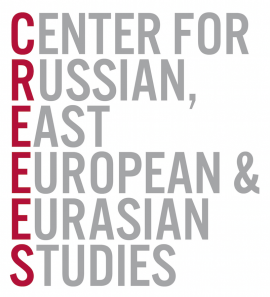Open to Stanford affiliates.
This talk explores the dynamics involved in the political conflict between Armenia and Azerbaijan over Nagorno-Karabakh during the break-down of the Communist system. Among the half dozen violent post-Soviet ethnic-territorial conflicts, Nagorno-Karabakh has been the most unruly and intractable interethnic war resulted by the emergence of the independent de facto republic of Nagorno-Karabakh, which previously was part of Soviet Azerbaijan. Fusing narratives obtained from the interviews and life stories of ordinary people who experienced the ethnic cleansing and war, this study attempts to embed the varying post-war rhetoric into relevant political and social contexts. The speaker’s account of the Karabakh conflict illuminates discursive ideologies of this nationalist war. It also examines the intersection between ethnicity and “national” interests involved in the radical-patriotic rhetoric surrounding the war.
More specifically, accusations of genocide and ethnic cleansing during post-Soviet conflicts in the South Caucasus region of the former USSR have not received significant scholarly attention to date, despite their ongoing significance for the development of official ideologies and national identities in South Caucasus countries. The study will focus on the recent history of ultra-nationalism and ethnic violence in Armenia and Azerbaijan, and its consequences for local population. This research in particular will give equal attention to two cases of post-Soviet ethnic cleansings, both of which relate to well-known incidents during the Nagorno-Karabakh war between Armenia and Azerbaijan, namely the Sumgait pogroms against Armenians in Azerbaijan and the Khojaly mass killing of Azerbaijanis in Nagorny Karabakh itself. Because the events at Sumgait and Khojaly continue to play a significant role in the Azerbaijani-Armenian conflict, this topic should be of interest to policy-makers seeking to resolve this and other similar ethnic conflicts.
Nona Shahnazarian is Associate Researcher at The National Academy of Sciences, Yerevan, Armenia and Center for Independent Social Research, St. Petersburg, Russia. She was a foreign visiting fellow at UCLA on Fulbright program (2006-2007), at SRC Hokkaido university, Japan (2011-2012), at Halle-Saale, DAAD, Germany (2012), at Higher School of Social Sciences, EHESS, Paris (2013), at Academic Swiss Caucasus Network, Fribourg university, Switzerland (2015), and at Armenian Research Center, Dearborn-Michigan University, USA (2015). She has conducted extensive fieldwork in Russia, Armenia, Georgia, and Nagorno-Karabagh and has published on the issues of gender, war, migration and diaspora in the Caucasus.





